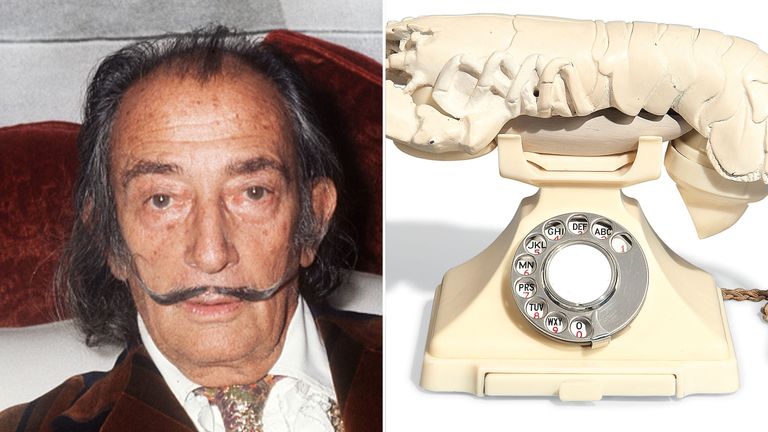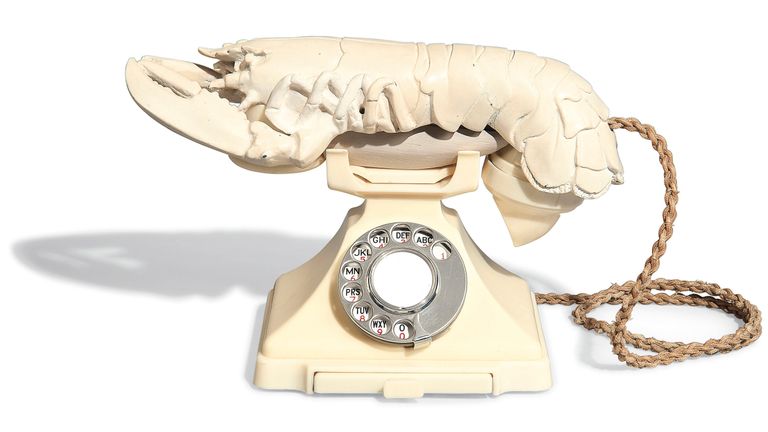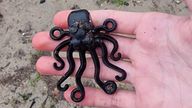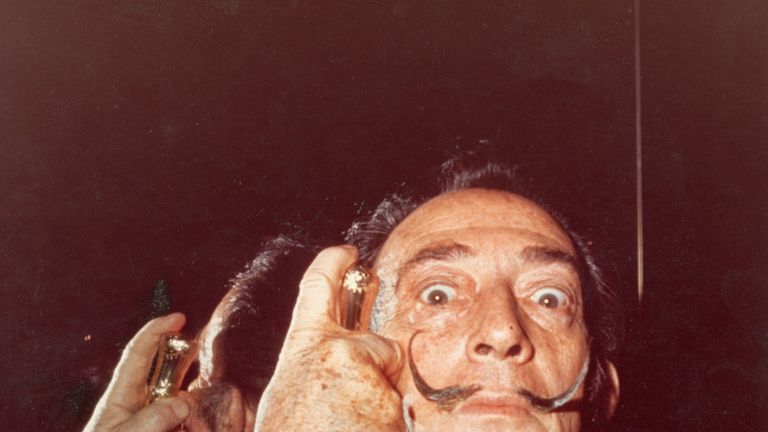Temporary export ban slapped on lobster phone to stop Salvador Dali artwork leaving UK
British collectors will have to shell out more than £850,000 to keep the White Aphrodisiac artwork in the country.
Friday 23 March 2018 14:57, UK
A Government minister has stepped in to stop one of Salvador Dali's iconic white lobster telephones from leaving the UK.
Arts minister Michael Ellis has put a temporary export ban on the surrealist artwork to give British buyers a chance to snap it up first.
Dali made 11 lobster telephones, with a red version owned by the Tate Modern.
Art lovers will have to splash out more than £850,000 to land Lobster Telephone (White Aphrodisiac), the last known white version of the piece in the UK.
The artworks were commissioned in 1938 by Edward James, Dali's patron and an English poet known for his promotion of the surrealist movement.
The inspiration came in 1936 when Dali and James were eating lobsters together at a restaurant and another guest threw a shell that landed on a telephone.
Each of the lobster telephones, seven of which were hand-painted white and four painted red, is slightly different and therefore unique.
James owned a private collection of surrealist works, including lobster telephones in white and red, at Monkton, his country house in West Sussex.
Today, most of the white versions are in museums abroad, including in public collections in Rotterdam, Florida, Johannesburg, Minneapolis and Lisbon.
Mr Ellis said: "Salvador Dali was one of the greatest artists of the 20th century. This iconic work was created in the UK, and I want it to remain here.
"It is important that we keep world-class art in this country and I hope a buyer can be found to save it for the nation."
The decision to issue a temporary export ban on the piece follows a recommendation by the Reviewing Committee on the Export of Works of Art and Objects of Cultural Interest (RCEWA), administered by the Arts Council.
RCEWA member Richard Calvocoressi said the importance of the piece could not be overestimated.
He said: "With its suggestion of both eroticism and menace, pleasure and pain, Lobster Telephone (White Aphrodisiac) is a classic surrealist conceit, recalling the 'trap' sculptures of Giacometti's surrealist phase.
"It also anticipates by half a century the confrontational but also playful sculptures made of manufactured and natural found objects by artists such as Jeff Koons and Damien Hirst."
A decision on issuing an export licence has been deferred until 21 June, with the possibility of extending the deadline until 21 September if a serious intention is made to buy the artwork at the recommended price of £853,047 (plus VAT of £29,000).





